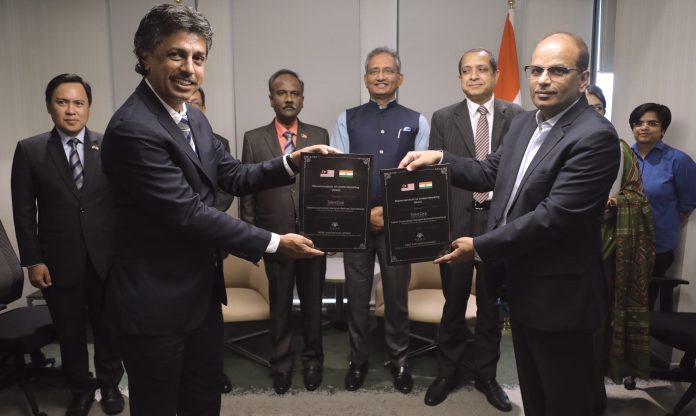
Talent Corporation Malaysia (TalentCorp) has entered a Memorandum of Understanding (MoU) with National Skills Development Corporation (NSDC) India to strengthen Malaysia’s industry-driven skills framework, especially for critical occupations in key sectors as well as TVET education.
The MoU is in line with the Ministry of Human Resources’ objective through TalentCorp to establish the Malaysia Future Skill Development Council to identify the skills needed to drive the economy forward and ensure that Malaysia’s workforce is equipped with in-demand skills.
At the MoU exchange ceremony, Datuk V. Sivakumar, Malaysia’s Minister of Human Resources said that the partnership is an outward looking collaboration and a catalyst in accelerating the Ministry of Human Resources’ focus towards strengthening its national ski
TalentCorp’s Group CEO Thomas Mathew said that the strategic partnership with NSDC India is part of TalentCorp’s mission to ensure that Malaysian talents would be prepared for the jobs of the future.
“Through learning and adopting from successful skills framework models such as the NSDC’s, the outcome will positively impact the country’s economy and help create a more skilled and competent workforce,” he said.
Under the collaboration, TalentCorp and NSDC will undertake to exchange information and best practices for an industry-driven skills framework including policies, programmes, and initiatives related to workforce development including TVET and apprenticeships.
NSDC’s Group General Counsel and NDSC’s International’s Director and CEO Ajay Kumar Raina said, “India has always placed Malaysia at the forefront of its international collaboration, with the government focusing on building a robust framework to strengthen the existing education systems across a myriad of areas such as vocational education and skill development.”
“The MoU marks another stepping-stone in NSDC’s direction of mapping skill gaps and developing relevant education and training programmes to meet evolving global business needs,” he added.



















